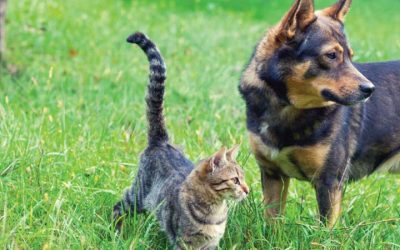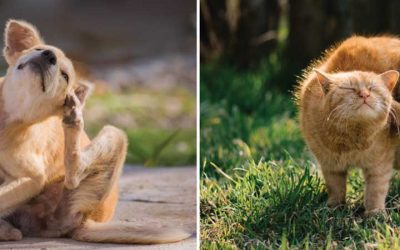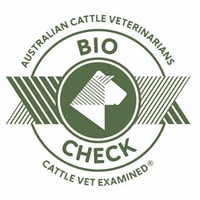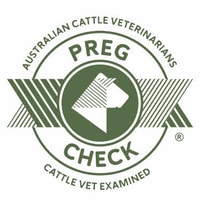
There are a few types of fireweed found in Australia, with majority of species being poisonous.
This plant is a short shrubby plant with yellow daisy like flower.
Cattle become affected if they are short of feed, or not used to having the plant in their environment. Sheep and goats seem to be more tolerant to the toxic effects and can be used to manage fireweed.
The most common is Senecio madagascariensis can cause liver disease when ingested. This is a slowly developing disease. Initially signs can be quite vague like:
- lethargy
- diarrhoea
- general unwell appearance and behaviour
When liver function is affected enough, you will spot signs of jaundice – the usually white mucous membranes will appear yellow (the whites of the eyes, skin inside vulva etc.).
Cattle will become photosensitive and get sunburn on paler parts of their nose/mouth area, they can become dull and stagger with nervous signs.
There is no specific treatment, only supportive care which includes removing the animals from the pastures affected, putting on good quality hay and locking them up with shade and water.
Giving antibiotics can help prevent secondary diseases due to the ineffective liver.
If an animal has been acutely affected, treatment can also include binding agents such as bentonite, and giving vitamin B1 to help prevent neurological brain signs.
Unfortunately, pasture management involves treating the fireweed after the autumn rains with chemical treatments or physically removing the plants.
If you are physically removing the plants, make sure you wear gloves as it can be irritating to human skin.
Once there is any sign of a flower, we recommend introducing sheep or goats to the property to eat the plants, was the flowers indicate the presence of seeds, which can be further spread with physical removal. Please note, sheep and goats used to eat the plants but can’t be used for more than 2 seasons in a row and should be non breeding stock.
More information can be found on the DPI website: https://weeds.dpi.nsw.gov.au
RELATED ARTICLES
Parasites
As the weather warms up, we start to see more parasite problems for all sorts of pets.Here are some of the more common parasites we come across, as well as some information on the problems they cause and how to get rid of them. Fleas Fleas are relatively easy to spot,...
Itchy skin and ear infections
Around springtime, we often see an increase in itchy skin (dermatitis) and ear infections in dogs and cats. How to spot itchy skin You should know almost right away if your cat or dog has dermatitis. Here are a few of the common signs: Constant scratching, licking, or...
Feline AIDS
The Feline Immunodeficiency Virus (FIV) causes feline AIDS and is relatively common in Australia and New Zealand, with up to 25% of domestic cats testing positive for the virus. This disease is incurable. It compromises the efficiency of a cat’s immune system by...
Keeping your pets active in winter
It can be hard to get out of your warm bed or off the cosy couch on a winter’s morning for exercise, and your pet can feel the same way too! It's important to continue exercising your pet in winter, as well as keeping them mentally stimulated. Being cooped up inside...
RELATED
ARTICLES
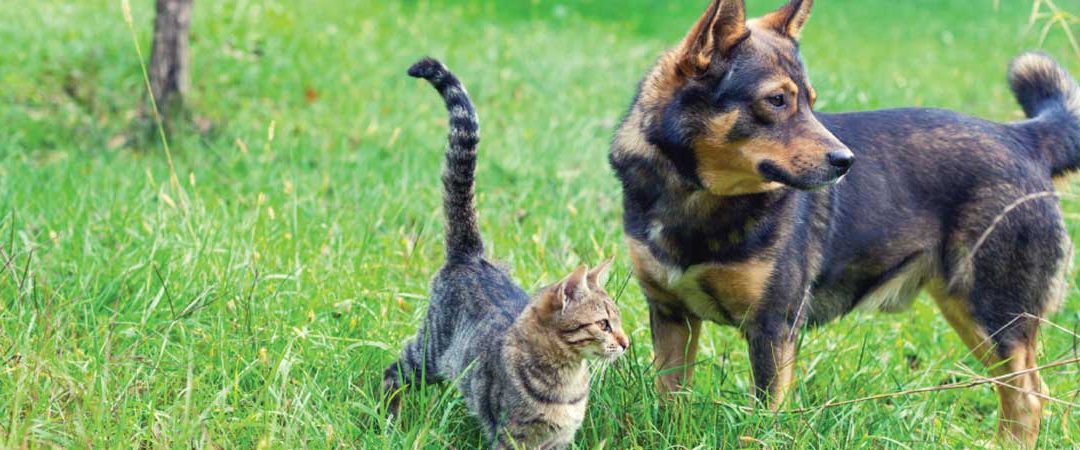
Parasites
As the weather warms up, we start to see more parasite problems for all sorts of pets.Here are some of the more common parasites we come across, as well as some information on the problems they cause and how to get rid of them. Fleas Fleas are relatively easy to spot,...

Itchy skin and ear infections
Around springtime, we often see an increase in itchy skin (dermatitis) and ear infections in dogs and cats. How to spot itchy skin You should know almost right away if your cat or dog has dermatitis. Here are a few of the common signs: Constant scratching, licking, or...

Feline AIDS
The Feline Immunodeficiency Virus (FIV) causes feline AIDS and is relatively common in Australia and New Zealand, with up to 25% of domestic cats testing positive for the virus. This disease is incurable. It compromises the efficiency of a cat’s immune system by...

Keeping your pets active in winter
It can be hard to get out of your warm bed or off the cosy couch on a winter’s morning for exercise, and your pet can feel the same way too! It's important to continue exercising your pet in winter, as well as keeping them mentally stimulated. Being cooped up inside...
Call Us Today To Discuss Your Animal Needs
Business Hours Phone: 07 4693 2233




